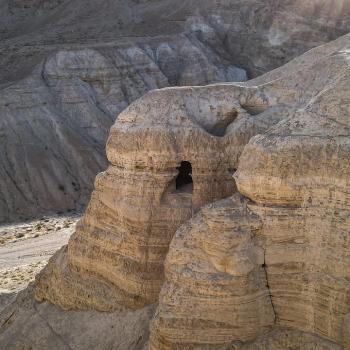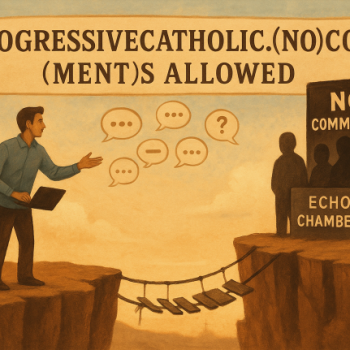Lectionary Reflections
2 Samuel 7:1-14a
July 22, 2012
This rather famous and important passage may be one of those "sore-thumb" passages. By that I mean it sticks up in the middle of an ongoing story and would not really be missed if it suddenly disappeared. At the end of chapter 6 we are told that because of the mutual hatred between David and his wife, Michal, the despised woman "had no child to the day of her death" (2 Sam. 6:23). Whether this fact is the direct punishment of YHWH for Michal's disparagement of YHWH's favorite, David, or the more earthly reality that David refused ever again to sleep with the woman, the story leaves for us to decide. Then chapter 8 returns us to the story of the continuous victories of the king over every nation surrounding Israel, victories that will create an Israel that is as large as the state ever gets.
But in chapter 7, we find what clearly is a piece of pro-Davidic propaganda. Or at least so it seems on the surface. The fact that the early Christians made much of the promises to David found here tells us something of just how this piece of Scripture was heard by later commentators. And that hearing can perhaps help us preachers decide just what we can do, and ought not do, with it in our pulpits.
The account begins with a statement that quite literally is not true. "So it happened (a Hebrew phrase typically used to tie something loosely to the proceeding material) when David was living in his house, YHWH having given him rest from all his surrounding enemies, that the king said to Nathan, the prophet, 'Look how I am living in a house of cedar while the Ark of God resides in a tent'" (vv. 1-2). The fact that the very next chapter will describe in considerable detail the continuous wars of David against surrounding enemies suggests that YHWH has not given David rest from all such struggles. This incongruity is further evidence that this piece of tradition has found its way here in mysterious ways and stops the flow of the narrative we have been reading.
David appears here to be in a reflective mood, at ease, he and his prophet Nathan chatting theologically in his splendid cedar house. One can only guess the grand and sumptuous smells that surround the powerful duo, rather like living in a modern cedar chest. At least the moths would be kept at bay! But the king is troubled that he lives in such luxury and comfort while the glorious Ark of God continues to dwell in a tent. Is that right, I ask you? The prophet readily agrees with his master. "Go! Do all that you have in mind, because YHWH is with you!" Nathan has apparently discerned that the king has determined to build something appropriate to house the Ark of God. Given what happens only four chapters hence, Nathan will deeply regret his open-ended words. David will all too soon "do all he has in his mind," and what is in his mind is adultery and murder and lying of the most appalling sort.
But here the king has architecture rather than mayhem in his mind. But before he can drive the first nail, even before he has begun to draw the plans, Nathan has a direct revelation from YHWH that thoroughly rejects David's desires. YHWH reminds the prophet that God has never at any time asked anyone for a "house of cedar," but prefers the mobility of "tabernacle and tent" (v. 6). YHWH continues to give Nathan a reminder of just how David was a shepherd, himself a mobile follower of the flock, and how YHWH made him prince over Israel, been with him always, cut off his enemies, and, perhaps most importantly, "will make for you (David) a great name, like the name of the great ones of the earth" (v. 9). You see, Nathan, David is just like Abram, that earlier worthy who was promised a great name (Gen. 12:3).
Thus, no great houses of cedar, please, not to mention no temples of stone. Instead, and here we come to the central bit, "Therefore YHWH declares to you that YHWH will make you a house" (v. 11). David will not make houses for YHWH; YHWH will make David himself a house. And what that means is made clear in the next two verses. "When your days are fulfilled, and you lie down with your ancestors, I will raise up your seed after you who will come forth from your body and I will establish his kingdom. He shall build a house for my name, and I will establish the throne of his kingdom forever. I will be a father for him, and he will be a son for me" (vv. 12-14a).
With these verses the clear propaganda purpose of this text appears. After the death of David, who has been designated as the progenitor of a "house," his "seed" (a singular noun in Hebrew but with an obvious plural intent) will appear. And it is that seed who will build YHWH a house; that seed is plainly Solomon, the temple builder who followed his father David, along with queen mother Bathsheba, to the throne. It is that throne that will exist forever. It hardly takes a very bright person to guess who wrote this piece: a Solomonic scribe has been at work here to legitimate the throne of David and his direct ancestors after him. And so it happened. A direct descendant of David sat on the Judean throne continuously (save for the short interregnum of the terrible queen Athaliah) right up to the fall of Jerusalem in 586 B.C.E. Hence, this text established the idea of the eternal Davidic dynasty.





